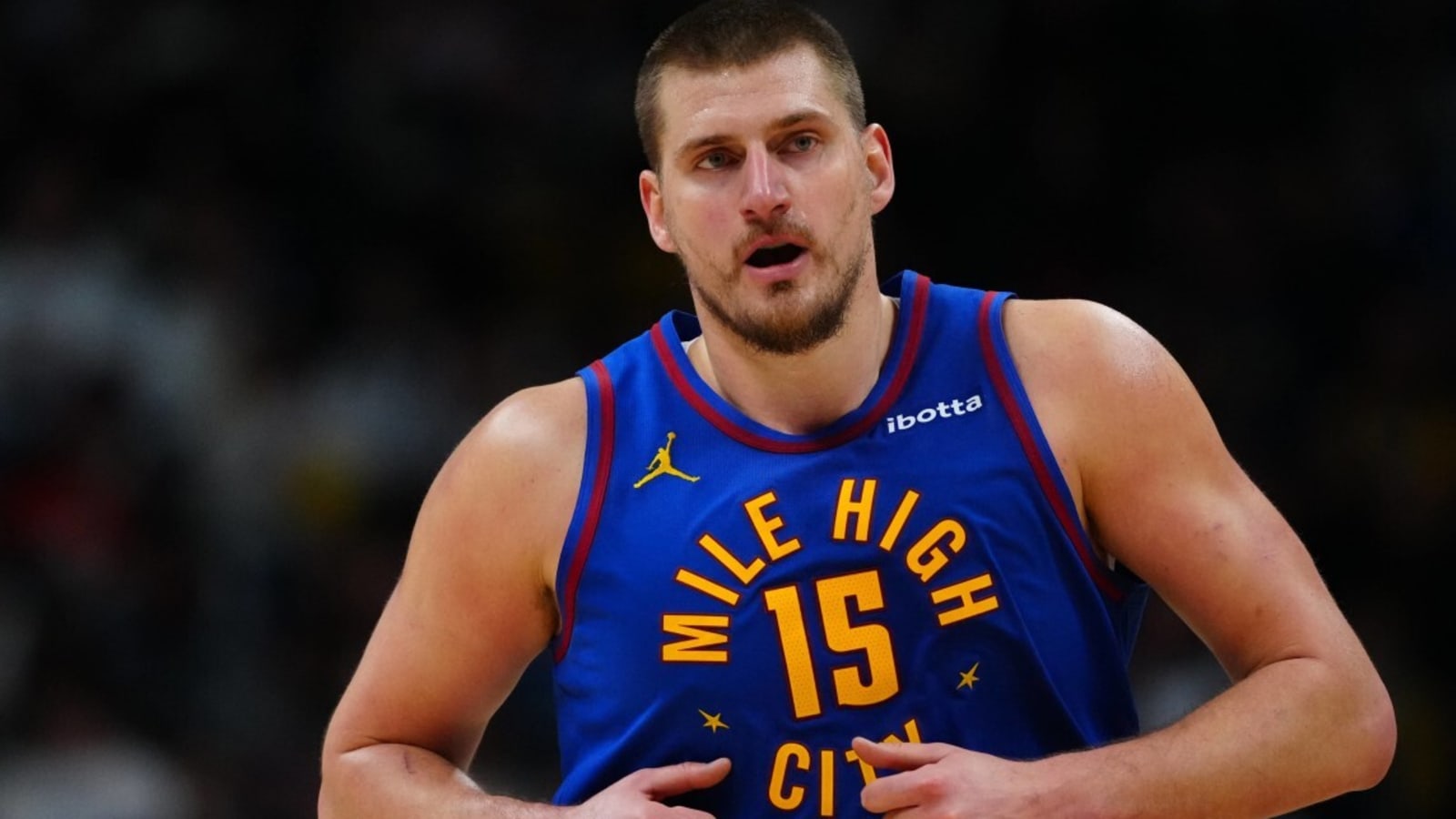
Nikola Jokic’s current season has placed him in the elite company of all-time greats, and statistically, he has outperformed Michael Jordan’s final MVP season in 1998 in nearly every major statistical category. While their playstyles are vastly different, Nikola Jokic’s all-around dominance in scoring, rebounding, and playmaking has produced numbers that even surpass the legendary performances of Jordan.
Nikola Jokic Stats: 29.1 PPG, 12.8 RPG, 10.3 APG, 57.5% FG, 41.3% 3PT FG, 80.7% FT
Michael Jordan Stats: 28.7 PPG, 5.8 RPG, 3.5 APG, 46.5% FG, 23.8% 3PT FG, 78.4% FT
Through 62 games this season, Jokic is averaging 29.1 points, 12.8 rebounds, and 10.3 assists per game, putting him on pace to become only the third player in NBA history to average a triple-double for an entire season—joining Oscar Robertson and Russell Westbrook.
His efficiency is also astounding, shooting 57.5% from the field, 41.3% from three, and 80.7% from the free-throw line, leading to an effective field goal percentage of 62.3%. His advanced metrics, including a 13.2 Box Plus-Minus (BPM) and an 8.7 Value Over Replacement Player (VORP), further illustrate his dominance as the most impactful player in the league.
Comparing this to Michael Jordan’s 1998 MVP season, we see a stark difference in statistical output. In his final MVP campaign, Jordan averaged 28.7 points, 5.8 rebounds, and 3.5 assists per game, leading the Chicago Bulls to a 62-20 record.
While he was still the NBA’s premier scorer, his efficiency was lower than Jokic’s, shooting 46.5% from the field and 23.8% from three—a reflection of the different offensive styles of their eras. Despite the lower counting stats, Jordan still finished with a 6.9 BPM and a 7.1 VORP, showcasing his two-way dominance.
While Jordan was still an elite two-way force, leading the NBA in scoring while providing defensive value (1.7 steals and 0.5 blocks per game), Jokic’s all-around brilliance stands out. His triple-double dominance, ability to orchestrate an offense, and historical efficiency as a big man give him a statistical advantage over Jordan’s final MVP run.
However, Jordan’s legacy isn’t defined solely by stats. His 1998 MVP season was legendary due to his ability to close games, his leadership, and the clutch performances that led to his sixth championship. Jokic, on the other hand, still needs to prove his dominance in the postseason consistently to elevate himself into that echelon of historical greatness.
Despite Jokic’s ridiculous statistical output, he is not the favorite for the MVP award this season.
That honor currently belongs to Shai Gilgeous-Alexander, who is leading the NBA in scoring at 33.0 points per game, while adding 5.0 rebounds, 5.2 assists, and 1.8 steals on an incredibly efficient 52.6% from the field, 37.1% from three, and 90.1% from the free-throw line.
His true shooting percentage of 64.5% is among the best in the league, and most importantly, his Oklahoma City Thunder hold the best record in the NBA at 57-12.
Meanwhile, the Denver Nuggets sit at 4th in the Western Conference with a 44-26 record. If Jokic were to lead the Nuggets to a higher seed while maintaining his historic triple-double pace, he could still make a late push for his third MVP award. But for now, the combination of Shai’s elite scoring and the Thunder’s league-best record makes him the frontrunner.
While Jokic may not win the MVP this season, his numbers place him in historical territory, and his impact on the game is undeniable. He is on pace to achieve something Jordan never did—averaging a triple-double for an entire season, further cementing his status as one of the most unique and dominant big men in NBA history.
More must-reads:
- Ex-76ers player calls out team for lowballing him
- Five under-the-radar moves in NBA free agency
- The 'Leading scorer by NBA franchise' quiz
Breaking News
Trending News
Customize Your Newsletter
 +
+
Get the latest news and rumors, customized to your favorite sports and teams. Emailed daily. Always free!








